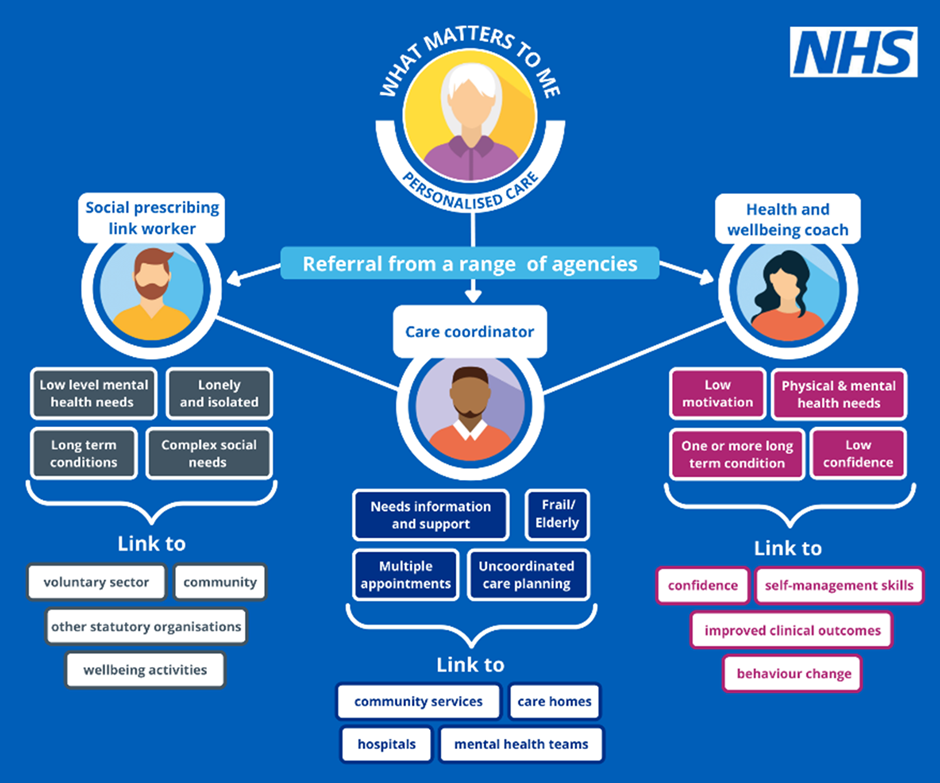People are increasingly affected by living with complex, long term health conditions, growing unmet health needs and the effects of other social determinants of health. The NHS has been expanding the Primary Care workforce to help tackle these issues since 2019, with the aim to reduce the health inequalities people experience.
Primary Care Networks are supported by the Additional Roles Reimbursement Scheme (ARRS) which has been established to help fund new roles. The ICB focus on the Personalised Care roles which include Social Prescribing Link Workers, Health and Wellbeing Coaches and Care Coordinators.
These roles are integral to delivering the NHS Long Term plan ambition for personalised care to reach 2.5 million people by 2023/24, as well as shift care to a more holistic biopsychosocial model.
Each role has a different function; however, they complement each other to ensure patients’ needs are met based on what really matters to them. The diagram below highlights what the roles do and how they work together.

Support for Personalised Care Workforce
Social Prescribing Link Workers, Health and Wellbeing Coaches and Care Coordinators are an integral part of the Personalised Care Model.
Social prescribing link workers connect people to community-based support, including activities and services that meet practical, social, and emotional needs that affect their health and wellbeing. This includes connecting people to statutory services for example housing, financial and welfare advice.
Social prescribing works particularly well for people with low level mental health needs, who feel lonely or isolated, with long term conditions and complex social needs.
Social prescribing link workers work collaboratively across the health and care system, targeting populations with greatest need and risk of health inequalities. They collaborate with partners to identify gaps in provision and support community offers to be accessible and sustainable.
Health and wellbeing coaches support people to increase their ability to self-manage, motivation levels and commitment to change their lifestyle. They are experts in behaviour change and focus on improving health related outcomes by working with people to set personalised goals and change their behaviours. They work with people with physical and/or mental health conditions and those at risk of developing them.
Health and wellbeing coaches can be an effective intervention for people experiencing a range of long-term conditions, including respiratory, cardiovascular (including type 2 diabetes and hypertension), and stress/low mood. They can also support people with weight management, diet and increasing activity levels.
Care co-ordinators help to co-ordinate and navigate care across the health and care system, helping people make the right connections, with the right teams at the right time. They can support people to become more active in their own health and care and are skilled in assessing people’s changing needs. Care co-ordinators are effective in bringing together multidisciplinary teams to support people’s complex health and care needs.
They can be an effective intervention in supporting people to stay well particularly those with long term conditions, multiple long-term conditions, and people living with or at risk of frailty.
